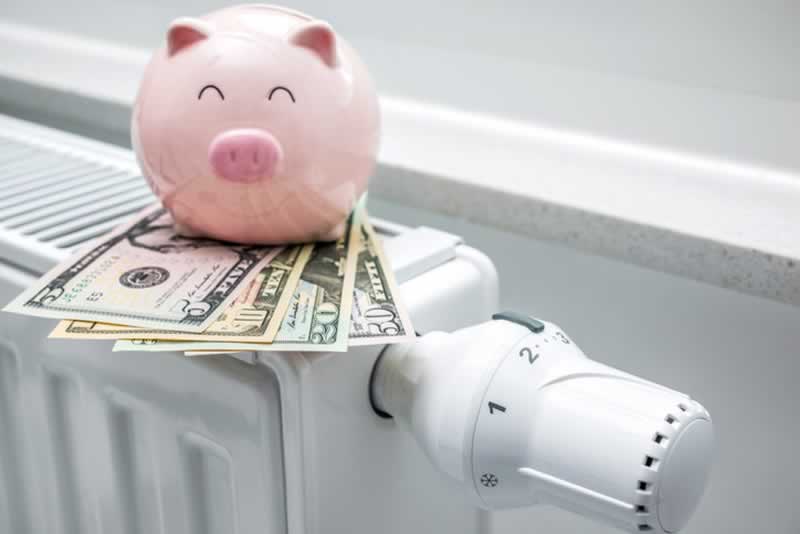To say there is a lot of money going into heating and cooling our homes would be an understatement. If you live in an area prone to hot summers and / or bitter cold winters, a significant portion of your income is likely to be devoted to maintaining comfortable temperatures in your residence. While there is no one-size-fits-all solution to exorbitant heating and cooling bills, there are a number of practical ways to save money in this area.
When you are tired of making a small fortune keeping your home at a comfortable temperature, make good use of the following pointers.
Install ceiling fans
While ceiling fans aren't exactly a substitute for air conditioning, they can work in conjunction with the air conditioning system to ensure your home stays comfortably cool during the summer months. For best results, install reliable ceiling fans in key areas and set them to rotate counterclockwise. This allows them to blow air down and create a cool, refreshing breeze. Conversely, in the cooler months, you should set your fans to spin clockwise, as this will facilitate good air circulation without making your home uncomfortably cold. For maximum safety, make sure your fans are completely off before changing the direction of the blades.
Open your Windows
In summer, outside temperatures tend to get much cooler after sunset. If the day and night temperatures differ significantly in your region, you should take advantage of this. As soon as the sun goes down and the temperature cools, turn off the air conditioning and open the windows. Next, use your ceiling fans to circulate the cool outside air around your home. In many cases, this is more convenient and far cheaper than leaving the air conditioning on all night.
Have your temperature control devices serviced regularly
In order to operate at maximum efficiency, your home's heating and air conditioning systems need regular maintenance. The exact frequency with which this important equipment should be professionally serviced depends on its age, manufacturer, model, and level of use. If you are unsure about the heater or the AC recommended maintenance schedule, refer to the appropriate owner's manuals, visit the manufacturers' websites, or contact the manufacturers directly. When your equipment is serviced, experienced professionals will carefully examine them for signs of wear and tear, identify possible brewing problems and carry out thorough cleanings. If you need help cleaning dirty air conditioning, simply entrust this task to a trained service technician.
Upgrade to energy efficient Windows
A fair amount of air can escape through your windows even when they are not open. The more air escapes, the harder heating and air conditioning have to work – and the harder these devices have to work, the more you can expect payment. To cut off your heating and air conditioning and reduce your energy bills, replace your current windows with energy efficient ones. In contrast to standard single-pane windows, energy-efficient windows contain several panes that make it difficult for indoor air to escape and for outside air to penetrate.
Since energy efficient windows are typically more expensive than single pane windows, it's easy to see why so many homeowners forego them. The immediate costs are a bit high, but energy-efficient windows save you a considerable amount of heating and cooling costs in the long run. Assuming you have the resources to save, it is preferable to part with a little cash on a short-term basis rather than spending a princely sum on a monthly basis.
Hang up thermal curtains
If energy efficient windows are outside of your price range, consider investing in high quality thermal curtains. According to their name, thermal curtains are much thicker than conventional window decorations. Like energy-efficient windows, they can help keep the indoor air in and the outdoor air out. As an added bonus, some thermal curtains can dampen outside noise. So, if you live in a constantly noisy area, thermal curtains can prove beneficial to a quieter home.
It's no secret that many homeowners spend considerable sums on heating and cooling bills. While virtually every modern home requires state-of-the-art heating and air conditioning, there is no rule that says you must pay a king's ransom to keep temperatures comfortable. While there is no way to completely eliminate heating and cooling costs, there are numerous steps you can take to reduce those costs.





